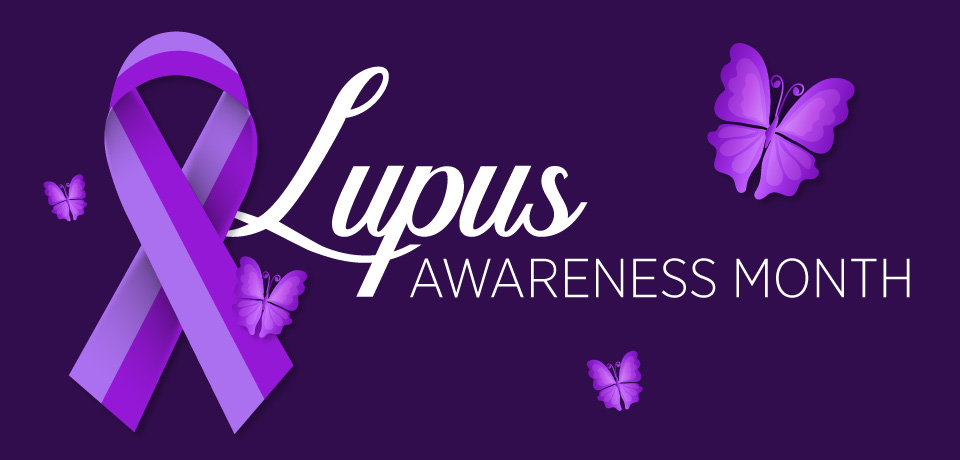
Everyone’s scars tell a story, what do yours say about you?
For those of you that know me, wearing kimonos and cardigans have become a part of my daily routine. To many, it is viewed as a fashion trend, but it serves a more important purpose to me. In an effort to protect my skin from the sun and certain building lights, these pieces of clothing are critical to my health. I would have never expected roughly four years after I lost a close friend to her fight against Lupus, that I would find myself admitted into a hospital with doctors uttering the word “Lupus”.
What is Lupus?
Lupus is one of the many chronic autoimmune diseases that can be blind to the eye. It’s known as a great imitator, as many of its milder symptoms are similar to common colds, the flu, or allergic reactions etc., which can make it difficult to diagnose. There are four different types of lupus: (1) Systemic lupus erythematosus (“SLE”), which is the most common and severe form (2) Cutaneous lupus erythematosus, which affects only the skin and causes various types of rashes and lesions (3) Drug-induced lupus erythematosus, which can be caused by a variety of prescription drugs and (4) Neonatal lupus, which is a very rare condition that can affect infants whose mothers have lupus. While Lupus affects women between the ages of 15 and 44 at a higher ratio, men are also at risk.
Essentially, Lupus causes a person’s immune system to attack its own tissues and organs. The inflammation caused by Lupus can affect any organ or system in the body including joints, skin, kidneys, lungs, blood cells, brain, and heart. It’s important to know that Lupus is not contagious and it also is not specifically a genetically inherited disease, as the simplest things such as stress can trigger it.
What are symptoms of Lupus?
While Lupus can affect every individual differently, the most common symptoms of Lupus are: fatigue, painful or swollen joints, swelling of the hands, light sensitivity, fevers, chest pain, hair loss, butterfly-shaped rashes, and anemia.
Prior to being diagnosed with Lupus, I experienced hair thinning, rapid weight loss as I had no appetite to eat anything, and severe inflammation throughout my body between December 2016 up until my diagnosis which I received in May 2017. From my lips swelling like a blowfish, to my legs being in so much pain that it would take me 20-30 minutes to walk from the parking garage to the front door of the office. I spent months seeing different doctors, constant emergency room visits, many of which resulted in multiple IV fluids and blood draws to the point that many of my veins were blown, and countless urgent care visits where I repeatedly received Benadryl shots to subside swelling. This shows just how difficult Lupus can actually be to diagnose.
After my diagnosis, my Rheumatologist and I were able to trace my lupus flare ups back at least to the age of 18. Every summer while on break from college, I would experience spots of hair loss on my scalp, which doctors just related it to “seasonal alopecia”. Now I know, this was not just “seasonal alopecia” but in fact Lupus!
How has Lupus affected my life?
To be honest, the past few years, most specifically 2017 was a very difficult year for me. Watching rapid changes happen to my body, receiving a diagnosis for a disease that there is currently no cure for, having repeat surgeries and blood draws to make sure that Lupus wasn’t affecting other internal organs, somewhat put me in a depressive state. Luckily, for me I have a strong support system of family, friends, and the wonderful people of TMX Finance Family of Companies including an awesome Legal Team. If it were not for this circle of support, I don’t know where I would be right now. What I do know is that things or my situation could always be much worse, so for that I’m grateful and always choose to look on the bright side of everything!
Today, my Lupus is heading in a positive direction towards remission and it’s still a learning process for me. The biggest challenges I have faced have been taking medication daily, getting used to not being able to eat certain items, becoming more tired than usual, feeling on a high or great somedays only to be inadvertently told that I look tired or drained, or receiving confused stares from strangers because I am parking in a handicap spot on days when I am experiencing a flare but based on my outward appearance I seem to be “just fine”. While each individual’s journey through this can be unique, there are many challenges that are common amongst all of those living with an autoimmune disease. Given that those with Lupus and other autoimmune diseases cope with symptoms that are silent and aren’t always visible, it is important that awareness around autoimmune diseases is promoted.
How can I learn more about Lupus and other Autoimmune Diseases?
The Lupus Foundation of America is a wonderful resource to learn more about Lupus and the development of treatments. Please visit www.lupus.org to learn more about Lupus and help us solve the cruel mystery, and support my fellow Lupus Warriors. Additionally, to learn more about various autoimmune diseases, please visit the page of the American Autoimmune Related Diseases Association, Inc. at www.aarda.org.
